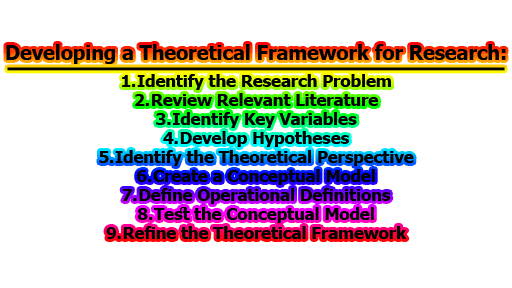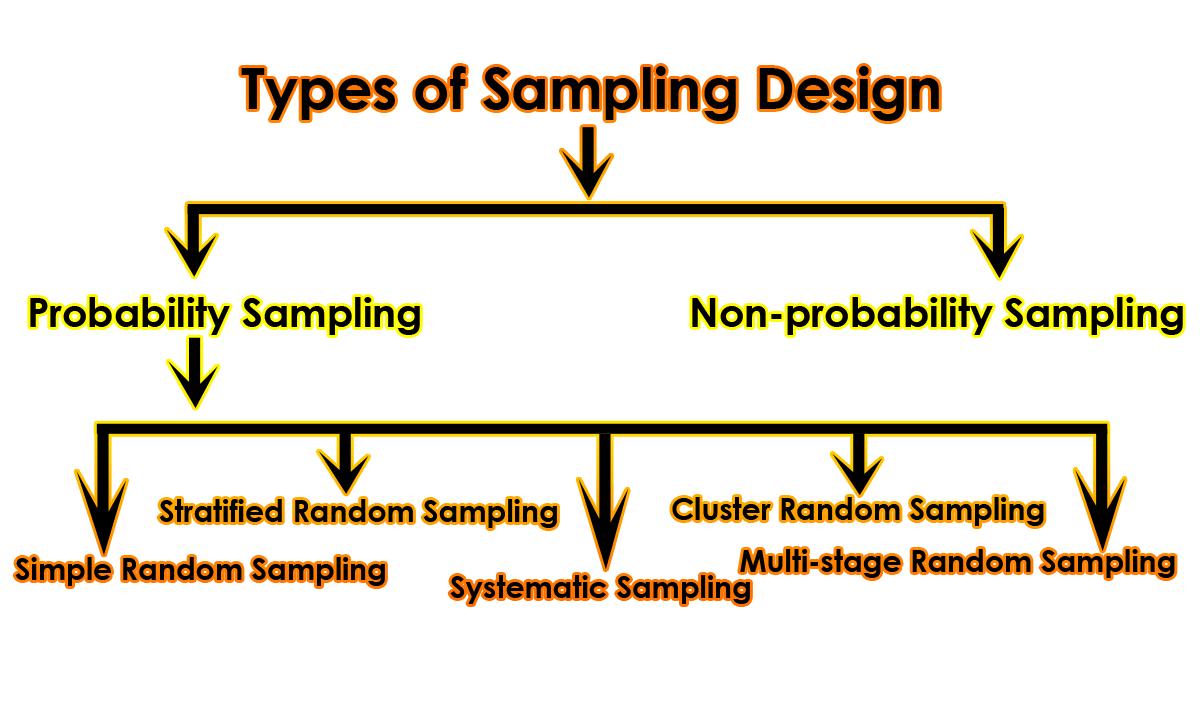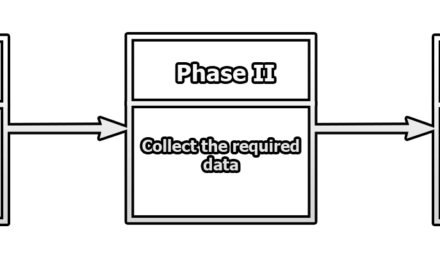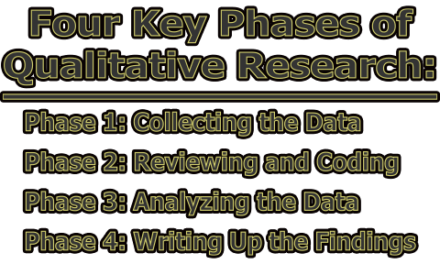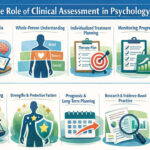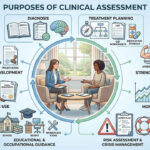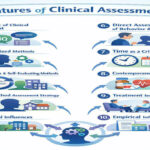Theoretical Framework:
A theoretical framework is a conceptual structure that provides a framework for understanding and analyzing a research problem. It is a set of concepts, assumptions, and propositions that form a way of thinking about and understanding a particular phenomenon. The theoretical framework serves as the foundation for the research study, helping to guide the research questions, hypotheses, and research methods. The theoretical framework is developed based on a review of the existing literature, including theories, concepts, and empirical studies related to the research problem. It is designed to provide a comprehensive understanding of the research problem, including its context, key variables, and relationships among variables. The theoretical framework may be drawn from a single theoretical perspective or may integrate several theoretical perspectives to provide a more comprehensive explanation of the research problem. However, a theoretical framework is a conceptual tool that helps researchers to organize their thinking, guide their research, and develop a better understanding of the research problem. It provides a roadmap for the research study and helps to ensure that the research is relevant, rigorous, and grounded in existing knowledge. In the rest of this article, we are going to provide an outline; developing a theoretical framework for research.
Developing a Theoretical Framework for Research:
Developing a theoretical framework is an important part of any research project. It helps researchers to understand and analyze the research problem by providing a conceptual structure that guides the research questions, hypotheses, and research methods. Here are some steps to follow when developing a theoretical framework for research:
- Identify the Research Problem: Begin by defining the research problem and stating the research questions. This will help you to determine the scope and focus of your theoretical framework. To identify the research problem, you need to consider your research interests, the current state of knowledge in your field, and the relevance and importance of the research problem to society.
- Review Relevant Literature: Conduct a thorough review of the literature related to your research problem. This will help you to identify key concepts, theories, and empirical studies that are relevant to your research. You need to use academic databases, search engines, and citation networks to conduct your literature review. The literature review should cover recent research, including seminal works and the most current trends in your field.
- Identify Key Variables: Identify the key variables that are relevant to your research problem. These variables may be independent, dependent, or mediating variables. You need to determine the relationship between the variables and how they relate to your research problem. In identifying the key variables, you need to consider both conceptual and operational definitions.
- Develop Hypotheses: Based on the literature review and the identified variables, develop hypotheses that articulate the expected relationships among the variables. Hypotheses are tentative explanations or predictions of the expected outcomes of your research. You need to test your hypotheses to determine if they are supported by your empirical research.
- Identify the Theoretical Perspective: Identify the theoretical perspective that will guide your research. This may be a particular theoretical framework or a combination of several theoretical perspectives. You need to select the theoretical perspective that best fits your research problem and that provides the most explanatory power for your research.
- Create a Conceptual Model: Use the identified variables, hypotheses, and theoretical perspective to create a conceptual model. The conceptual model should visually represent the relationships among the variables. You need to use diagrams, flowcharts, or other visual representations to create your conceptual model.
- Define Operational Definitions: Define operational definitions for each variable in the conceptual model. Operational definitions describe how each variable will be measured or manipulated in the research. You need to use objective and reliable measures to operationalize your variables.
- Test the Conceptual Model: Test the conceptual model through empirical research. This will involve collecting data, analyzing the data, and comparing the results to the hypotheses and the conceptual model. You need to use appropriate research methods and techniques to collect and analyze your data.
- Refine the Theoretical Framework: Based on the results of the empirical research, refine the theoretical framework. This may involve revising the conceptual model, adjusting the hypotheses, or modifying the operational definitions of the variables. You need to use the results of your empirical research to refine your theoretical framework and contribute to the development of knowledge in your field.
By following these steps, you can develop a robust theoretical framework that will guide your research and help you to make meaningful contributions to your field of study.
References:
- Creswell, J. W. (2014). Research design: Qualitative, quantitative, and mixed methods approaches. Sage Publications.
- Cooper, H. (2016). Synthesizing research: A guide for literature reviews (5th ed.). Sage Publications.
- Sekaran, U., & Bougie, R. (2016). Research methods for business: A skill building approach (7th ed.). Wiley.
- Hair, J. F., Black, W. C., Babin, B. J., & Anderson, R. E. (2018). Multivariate data analysis (8th ed.). Cengage Learning.
- Fishbein, M., & Ajzen, I. (2011). Predicting and changing behavior: The reasoned action approach. Psychology Press.
- Babbie, E. (2016). The practice of social research (14th ed.). Cengage Learning.
- DeVellis, R. F. (2016). Scale development: Theory and applications (4th ed.). Sage Publications.
- Field, A. (2018). Discovering statistics using IBM SPSS statistics (5th ed.). Sage Publications.
- Creswell, J. W., & Plano Clark, V. L. (2017). Designing and conducting mixed methods research (3rd ed.). Sage Publications.

Library Lecturer at Nurul Amin Degree College

